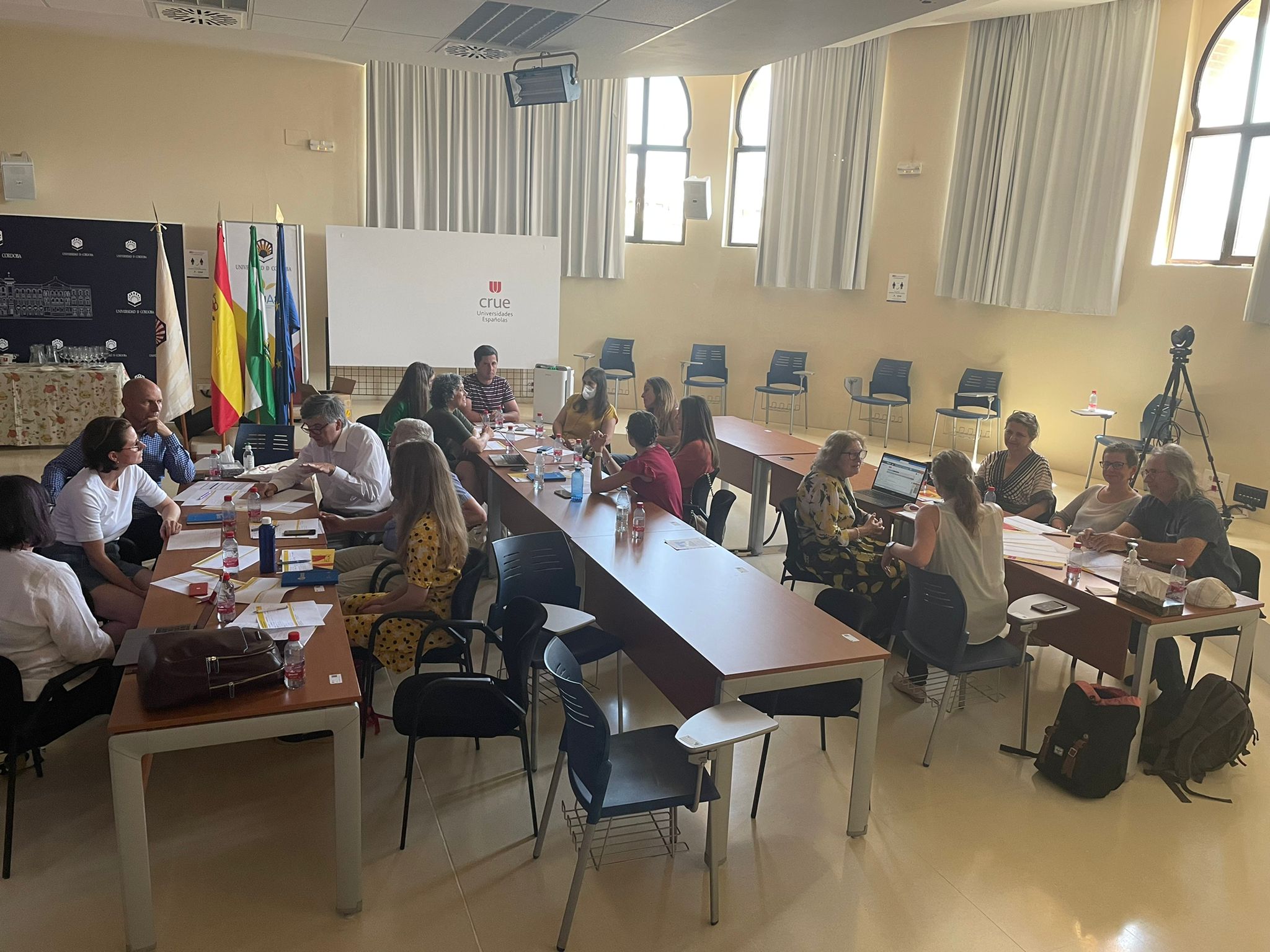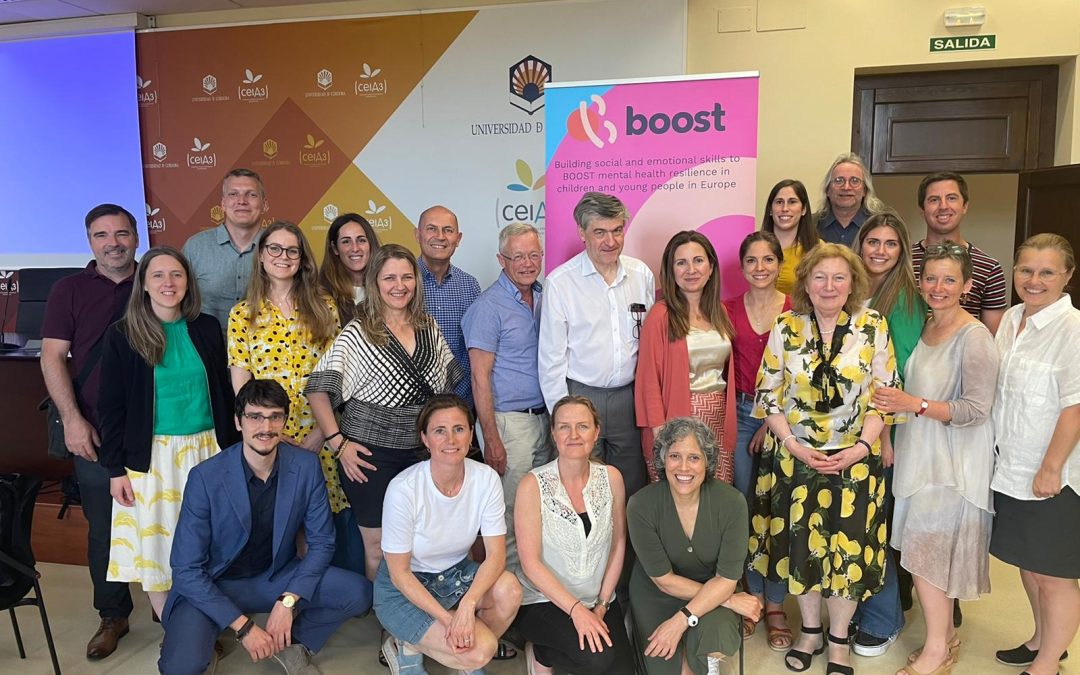After two long years of virtual interactions due to the COVID-19 pandemic, the BOOST consortium partners and the members of the Advisory Board finally met in Córdoba from 10 to 12 May to take stock of the implementation status and plan together the next steps from here to the project’s end (June 2023). This three-day meeting was a great occasion for partners to have a deep and constructive discussion on the strategies to ensure the uptake of the BOOST approach across Europe in the years to come.
The first day (10 May) was entirely devoted to the internal discussion between research partners (SINTEF, UCO, and AWF). After a warm welcome from Gloria Azalde and Stine Hellum Braathen, the project coordinators from SINTEF, each research partner presented and discussed the progress of their respective tasks. The UCO team (made up of Eva Romera, Antonio Camacho López, and Rocío Luque González) kicked off the discussion by presenting the methodology of data collection and analysis and illustrating some results coming from the adoption of the BOOST approach on students, parents, and teachers in Spain at different time phases (WP5). Partners discussed the issue of data management also in the frame of WP1 and WP4, and took the opportunity to align on the upcoming publications and the implementation report for the three countries (WP3).

Research partners in front of the entrance of the Rectorate of the University of Córdoba (10 May 2022) – Photo taken by the editorial staff of the Scientific Culture and Innovation Unit (UCCi) of the University of Córdoba.
On the second day (11 May), the University of Córdoba hosted all BOOST partners and the members of the Advisory Board to discuss the state of the art within each WPs, recalling the achievements made so far and the latest developments. It was the occasion to deep dive into the second iteration of the BOOST Approach (WP2) – including the 5-steps (service) model -, an updated version of the approach resulting from the experiences, findings and feedback collected in the last two years. The approach aims to support schools most properly in establishing a structure for working systematically with SEL, following BOOST guiding principles: whole-school oriented, research-based, continuous, systematic, adaptable, co-creative, and time efficient.
The second part of the day was devoted to a co-creation workshop organised and led by SINTEF, with the active participation of the Advisory Board’s members: Dr. Johannes Theiner, Dr. Nils Lundin, Prof. Rosario Cabello, Prof. Pablo Fernandez-Berrocal, Dr. Mimi Tatlow-Golden, and Elżbieta Leszczyńska. These interactive sessions aimed to identify all the potential short- and long-term exploitable results of the BOOST project, the obstacles to overcome, and the stakeholders and end-users to be targeted to guarantee a successful project’s uptake at local, national and European level.
On the last day (12 May), BOOST partners had the chance to further develop and share their reflections on the most relevant points that emerged from the WP8 workshop. After this, EUREGHA presented and gathered input for the upcoming dissemination and communication activities to ensure broad visibility of the project’s core messages and outcomes and strengthen the engagement around the project from the regional to the EU level.
Córdoba was the last in-person consortium meeting before the Final Conference, coming in spring 2023. Throughout the following twelve months, there will be many initiatives on the horizon to promote BOOST findings and results. So, stay tuned and follow our work to see how the BOOST approach wants to build children’s mental health resilience in Europe!

BOOST partners and the Advisory Board during the co-creation workshop (11 May 2022)

